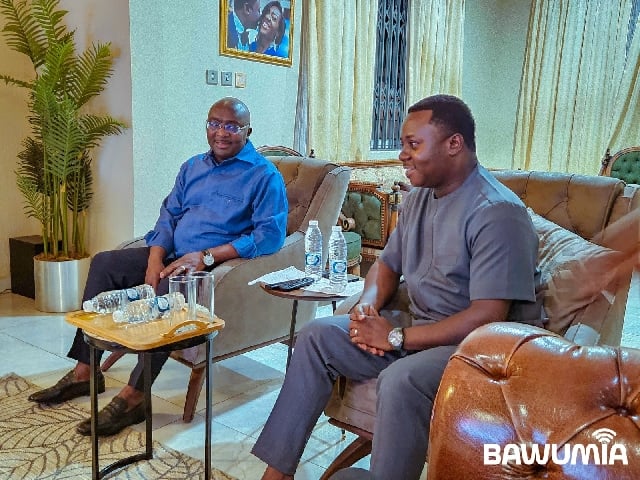The incident involving an alleged attempted raid on the residence of Reverend John Ntim Fordjour, Member of Parliament for Assin South and Ranking Member of the Defence and Interior Committee, by officials purportedly from the National Intelligence Bureau (NIB), has sparked significant political controversy in Ghana. Former Vice President Dr. Mahamudu Bawumia visited Rev. Fordjour following the incident, which was met with strong condemnation from the Minority caucus in Parliament, who labeled the action as politically motivated harassment. Dr. Bawumia’s visit signifies a growing concern over the alleged politicization of security agencies and the potential erosion of democratic norms.
Dr. Bawumia, in a statement released on social media, described Rev. Fordjour as being “in high spirits and undaunted” despite the unsettling experience. This portrayal of resilience in the face of alleged intimidation underscores the seriousness of the accusations and the potential chilling effect on political discourse. The former Vice President used the opportunity to call for calm among members of the New Patriotic Party (NPP), urging them to remain steadfast and law-abiding while the situation unfolds. His message aimed to prevent escalation of tensions while simultaneously highlighting the alleged injustice.
The incident and subsequent reactions underscore a broader concern about the potential misuse of state security apparatus for political purposes. Dr. Bawumia’s visit and his public statement can be interpreted as a direct challenge to what he perceives as an abuse of power. By publicly supporting Rev. Fordjour and condemning the alleged actions of the NIB, Dr. Bawumia positioned himself as a defender of democratic principles and a critic of the current administration’s approach to security and political opposition.
The core of Dr. Bawumia’s argument centers on the importance of maintaining the neutrality and integrity of security institutions. He directly addressed President John Dramani Mahama, appealing for intervention and urging him to “rein in his security operatives.” This direct appeal highlights the perceived urgency of the situation and emphasizes the potential damage to the country’s democratic fabric if such actions are allowed to continue unchecked. The accusation that security institutions are being used as “political tools to harass and intimidate opponents” strikes at the heart of democratic governance and raises concerns about potential abuses of power.
Dr. Bawumia’s warning that “Ghanaians will not accept this descent into lawlessness and fear” reflects a broader sentiment of unease regarding the perceived erosion of democratic values. The incident involving Rev. Fordjour is presented not as an isolated event, but as part of a larger pattern of intimidation tactics aimed at silencing political dissent. This narrative frames the situation as a struggle to uphold the rule of law and protect fundamental democratic rights.
The incident and the subsequent reactions have brought into sharp focus the delicate balance between national security and individual liberties within a democratic framework. The allegations of politically motivated harassment raise critical questions about the independence and impartiality of security agencies and the potential for their misuse to suppress political opposition. Dr. Bawumia’s intervention, by publicly supporting Rev. Fordjour and directly challenging the President, elevates the issue to a national conversation about the protection of democratic values and the rule of law in Ghana. The unfolding events will likely continue to shape the political landscape and raise broader questions about the role and responsibilities of security institutions in a democratic society.














